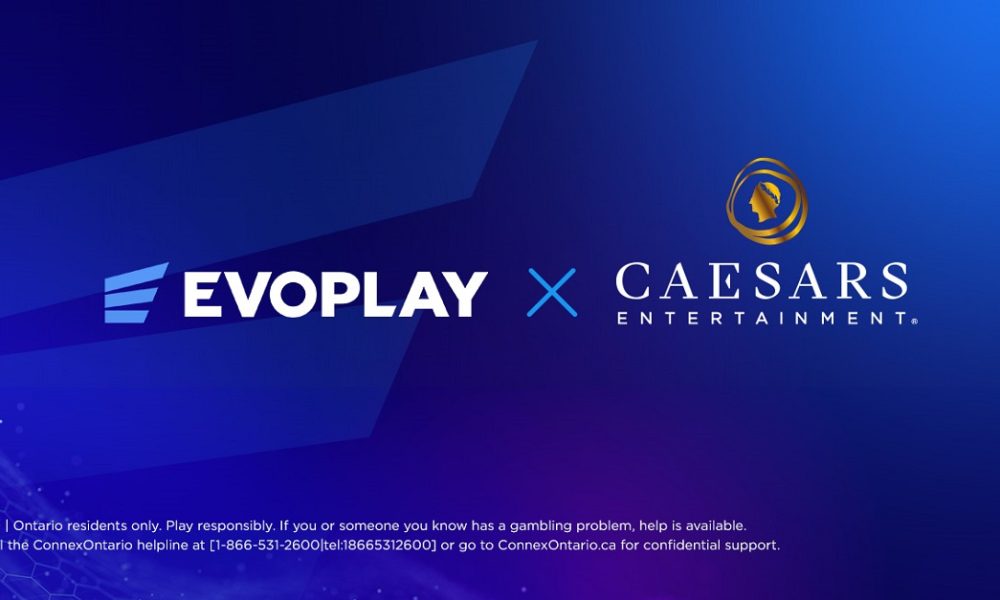

Canada
PlayNJ.com: Sports betting slows, online casinos thrive in July
The NBA Finals and the Olympics could not help New Jersey’s sportsbooks to counter a national trend that has typically made July the slowest month of sports betting. But with relatively strong sports-betting revenue, another monthly record for online gambling, and strong results from Atlantic City’s retail casinos, New Jersey’s gaming outlets set a fresh record for total gaming revenue in a month with $450.6 million in July, according to PlayNJ, which tracks the state’s regulated online gaming and sports betting market.
“Atlantic City benefits from a boost in summer tourism, but July is a time when summer travel and busy schedules put online sports betting in the backseat, particularly for locals,” said David Danzis, lead analyst for PlayNJ.com. “In the end, online casino gaming, retail casinos, and online and retail sports betting work as a three-legged stool, and together they are helping the New Jersey gaming industry outperform most every market in the U.S.”
Online and retail sportsbooks accepted $578.7 million in bets in July, down 24.5% from $766.9 million in June, according to official data released Monday. July 2021 was up 83.7% from $315.1 million in July 2020, a month with the relaunch of baseball and the beginning of the NBA bubble.
July’s wagering was far less than February’s $743 million handle, previously the low point of the year. That echoes 2019, when July’s $251.4 million handle was the lowest monthly tally of that year.
At 7.8%, the hold percentage remained high in July for New Jersey’s sportsbooks, yielding $55.0 million in gross gaming revenue. That was down 22.9% from $71.3 million in June and up 86.0% from $29.6 million in July 2021. In the end, sports betting produced $8.3 million in state and local taxes in July.
Baseball was the top sport in July with $195.4 million in wagering over the course of the month, up from $169.3 million in June. With the NBA Finals in July, basketball was second with $74.8 million, down from $190.9 million in June. Sports listed as “other,” which would include the Olympics, fell to $180.4 million from $234.8 million in June.
“The Olympics didn’t cause a spike in volume, which was held down even more by the significant difference in time zones,” said Eric Ramsey, analyst for the PlayUSA.com Network, which includes PlayNJ.com. “The NBA Finals helped the state’s sportsbooks avoid a steeper decline, and the Olympics did offer sportsbooks a chance to reach new customers, which can be valuable down the road.
Online operators generated $529.4 million in wagers in July, or 91.5% of July’s statewide handle. FanDuel Sportsbook/PointsBet once again topped online operators with $29.5 million in gross revenue, down from $38.1 million in May.
FanDuel was followed in revenue by:
- Resorts Digital/DraftKings/Fox Bet ($10.6 million, down from $13.0 million in June)
- BetMGM/Borgata ($5.9 million, up from $5.6 million)
- Monmouth/William Hill/SugarHouse/TheScore ($2.0 million, even with June)
- Ocean Casino/William Hill/Tipico ($1.5 million, down from $2.3 million)
- Hard Rock/Bet365/Unibet ($925,775, up from $642,297)
- Caesars Sportsbook/888sport/WynnBet ($193,331, down from $243,981)
- Golden Nugget/BetAmerica ($79,223, down from $80,615)
- Tropicana/William Hill ($36,490, up from $92,388)
Retail sportsbooks continued in their recovery, tallying $49.3 million in wagers in July, down from $83.9 million in June. Meadowlands/FanDuel topped all retail sportsbooks in July with $2.2 million in revenue.
“Casual sports bettors engage with sportsbooks less frequently in the heart of the summer,” Danzis said. “But the good news for sportsbooks is that sports betting will soon start to gain momentum as casual bettors return home from summer vacations and begin to turn their focus to football.”
Online casinos and poker
Online casinos and poker rooms continue to side-step any summer slowdown, generating a record $118.7 million in gross gaming revenue in July. That is up 35.7% from $87.5 million in July 2020 and up 10.9% from $107.1 million in May. July shattered the previous revenue high of $113.7 million set in March.
Online casino games alone generated $115.6 million in July, pushing lifetime revenue to $3.0 billion since online gambling launched in November 2013. And growth has been consistent from the beginning. Through seven months of 2021, online casino games and poker have generated $752.9 million in revenue, up 47.6% from $510.2 million through the same period in 2020.
“The bounce back in Atlantic City hasn’t slowed online casinos a bit,” Ramsey said. “Any worry that the return of casino visitation would come at the expense of online revenue should be alleviated now.”
Other highlights from July’s report:
- Borgata/BetMGM led the state with $36.5 million in casino and poker revenue, a record for any licensee over a single month. That topped rival Golden Nugget’s $33.5 million in revenue. Resorts Digital was third with $23.3 million in revenue.
- The revenue from online casinos and poker rooms injected $20.8 million into state and local coffers.
- Online casinos and poker generated $3.8 million in revenue per day over the 31 days in July, up from $3.6 million per day over the 30 days of June.
- Online poker generated $3.1 million in revenue, down 36.2% from $4.8 million in July 2020.
For more information and analysis on regulated sports betting and online gaming, visit PlayNJ.com/news.
About the PlayUSA.com Network:
The PlayUSA.com Network is a leading source for news, analysis, and research related to the market for regulated online gaming in the United States. With a presence in over a dozen states, PlayUSA.com and its state-focused branches produce original daily reporting, publish in-depth research, and offer player advocacy tools related to the advancement of safe, licensed, and legal online gaming options for consumers. Based in Las Vegas, the PlayUSA Network is independently owned and operated, with no affiliations to any casino — commercial, tribal, online, or otherwise.
Canada
absolutebet Secures AGCO Registration as an Internet Gaming Operator in Ontario

Internet Gaming Operator by the Alcohol and Gaming Commission of Ontario (AGCO).
This significant milestone authorizes absolutebet to offer regulated iGaming services in Ontario’s legal market under the oversight of AGCO and iGaming Ontario (iGO).
The registration marks a key step in absolutebet’s mission to bring a trusted, responsible, and innovative online casino experience to Ontario players. absolutebet is committed to operating with integrity and transparency, meeting all provincial standards for player protection, responsible gambling, anti-money laundering, and game integrity.
“Securing AGCO registration is more than a milestone—it’s the start of absolutebet’s journey in one of the most exciting regulated markets in the world,” said Chen Truman, Founder of absolutebet. “We are building a brand that will grow with the Ontario community and set the stage for future expansion.”
On the regulatory milestone, Krisztina Kalla, Legal & Regulatory Compliance Advisor of absolutebet, commented: “I’m incredibly proud to see all the hard work behind this license pay off. Securing AGCO registration has taken months of preparation and close collaboration with regulators and partners. I am very happy to see the result of that work, and even more excited as we move into the launch phase and open up the absolutebet community to Ontario players in a fun and responsible way.”
Ontario is recognized as one of the most competitive and fast-growing regulated iGaming markets in North America. With AGCO registration secured, absolutebet will move forward with the final stages of its iGO onboarding process in preparation for launch.
The post absolutebet Secures AGCO Registration as an Internet Gaming Operator in Ontario appeared first on Gaming and Gambling Industry in the Americas.
Alex Malchenko Head of Sales at Evoplay
Evoplay strengthens Ontario presence in partnership with Caesars Entertainment

Evoplay, the award-winning game development studio, has partnered with Caesars Entertainment to expand its footprint in the Canadian market, following its initial entry earlier this year. The partnership integrates 20 of the studio’s top-performing titles onto Caesars Palace Online Casino, Horseshoe Online Casino and Caesars Sportsbook & Casino in Ontario, including fan-favourites such as Hot Triple Sevens, Triple Chili, and The Greatest Catch Bonus Buy.
Having announced its official entrance into Ontario in March, the collaboration with Caesars marks a significant step in Evoplay’s local strategy. Further standout releases, such as Inner Fire Bonus Buy and Hot Volcano, also launched as part of the initial package, with additional player favourites, including Fruit Nova and Ice Mania.
The collaboration underlines Evoplay’s commitment to working with leading operators to deliver high-quality content tailored to regional audiences.
Alex Malchenko, Head of Sales at Evoplay, said: “Launching with Caesars in Ontario marks a key milestone in our North American strategy.
“It reflects both the strength of our portfolio and our commitment to providing innovative, high-performing content to operators of the highest caliber.”
Ricardo Cornejo Rivas, Vice President of Online Gaming at Caesars Digital, said: “Evoplay brings a fresh and dynamic approach to online gaming, which we’re excited to offer to our players in Ontario. This portfolio of standout titles adds to our growing content library and furthering our ongoing goal of delivering top-tier entertainment experiences to our players.”
The post Evoplay strengthens Ontario presence in partnership with Caesars Entertainment appeared first on Gaming and Gambling Industry in the Americas.
Canada
iGaming Ontario Appoints Joseph Hillier as its New President and CEO

The iGaming Ontario Board of Directors has announced Joseph Hillier as the organization’s new President and Chief Executive Officer, effective September 8, 2025. Joseph’s depth in the Ontario igaming market combined with successful public and private sector careers make him the ideal President and CEO at this critical point in iGaming Ontario’s growth.
Joseph was most recently Chief Strategy Officer and Corporate Secretary at the Alcohol and Gaming Commission of Ontario (AGCO), where he delivered significant strategic and regulatory initiatives across the province’s alcohol, cannabis, gaming, and horse racing sectors. Prior to the AGCO, he served as Chief of Staff to Ontario Attorney General Hon. Doug Downey and led the development, launch and implementation of Canada’s first private sector-driven igaming market and the creation of iGaming Ontario. Joseph also spent more than a decade working in the financial and legal services sectors.
The Board expressed its sincere thanks to David Smith for serving as Interim President and Chief Executive Officer since Martha Otton’s retirement.
The post iGaming Ontario Appoints Joseph Hillier as its New President and CEO appeared first on Gaming and Gambling Industry in the Americas.
-

 gaming3 years ago
gaming3 years agoODIN by 4Players: Immersive, state-of-the-art in-game audio launches into the next generation of gaming
-
EEG iGaming Directory9 years ago
iSoftBet continues to grow with new release Forest Mania
-
News7 years ago
Softbroke collaborates with Asia Live Tech for the expansion of the service line in the igaming market
-
News7 years ago
Super Bowl LIII: NFL Fans Can Bet on the #1 Sportsbook Review Site Betting-Super-Bowl.com, Providing Free Unbiased and Trusted News, Picks and Predictions
-
iGaming Industry8 years ago
Rick Meitzler appointed to the Indian Gaming Magazine Advisory Board for 2018
-
News7 years ago
REVEALED: Top eSports players set to earn $3.2 million in 2019
-
iGaming Industry8 years ago
French Senator raises Loot Boxes to France’s Gambling Regulator
-
News7 years ago
Exclusive Interview with Miklos Handa (Founder of the email marketing solutions, “MailMike.net”), speaker at Vienna International Gaming Expo 2018









